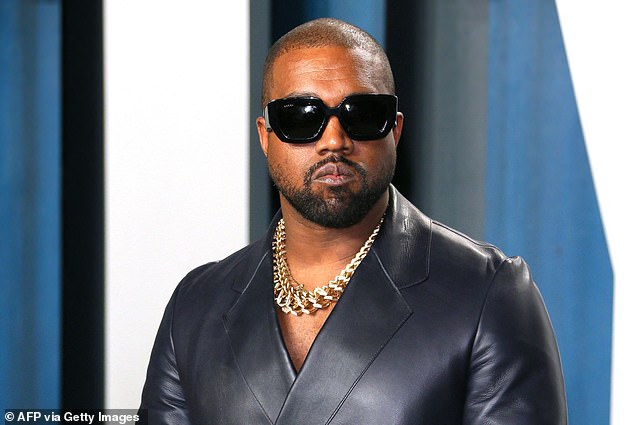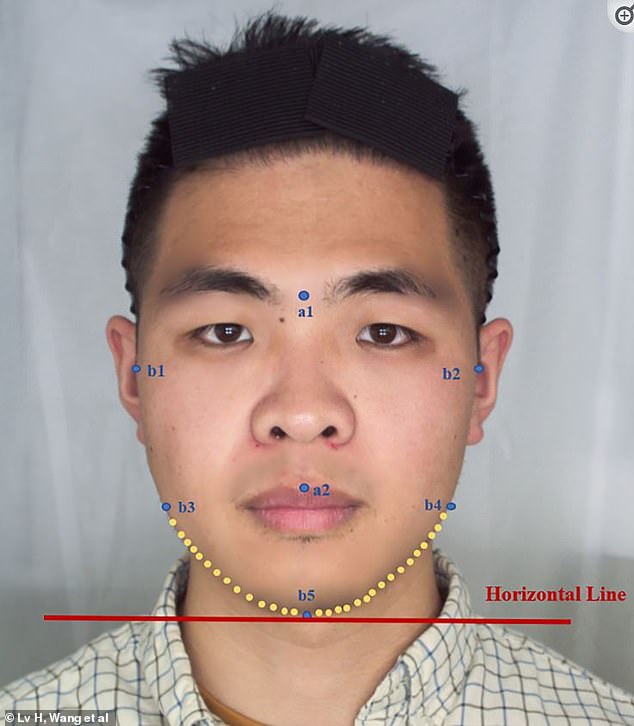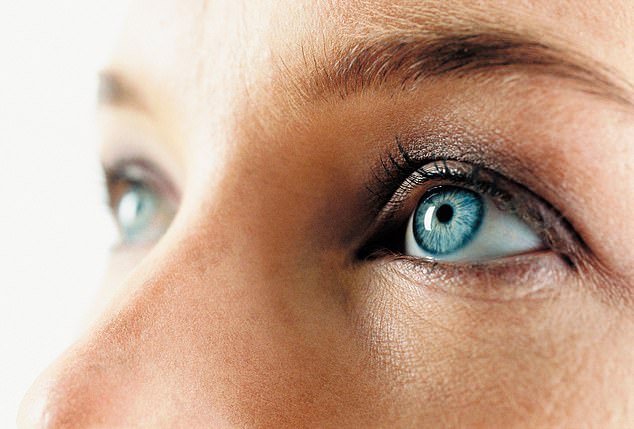Ever looked in the mirror to see what messages you’ve unknowingly been giving off to those around you?
Whether we like it or not, our faces are hugely important in shaping how we are perceived.
And some studies even suggest that our faces can reveal hidden details of our personalities.
From the size of your cheeks to the movement of your eyes, there is a lot to discover in the humble mug.
So, what does your face say about you?
Eyebrows
Whether it’s an inquisitive raised brow or a deep frown, our eyebrows are a very expressive part of our face.
The brow is so important that a study from the University of York even suggests that it might be a vital part of our human evolution.
The research suggests that jutting brows gave our ancestors the ability to communicate a wider range of emotions, which helped them to forge vital social bonds.
Co-author of the paper, Dr Penny Spikins, said: ‘Tiny movements of the eyebrows are also a key component to identifying trustworthiness and deception.
‘On the flip side it has been shown that people who have had botox which limits eyebrow movement are less able to empathise and identify with the emotions of others.’
So, simply having big eyebrows can make you appear more trustworthy and empathetic.
But it also matters where your eyebrows are on your head, according to researchers from the University of Glasgow.
They analysed the snap judgements people make and found that faces with raised eyebrows were seen as richer, more trustworthy, warmer, and more competent.
Lowered eyebrows on the other hand were considered a sign of being untrustworthy.
However, the researchers note that this might be more a reflection of stereotypes than of a real personality difference.
Dr Thora Bjornsdottir, a psychologist from Royal Holloway and co-author of the paper, told MailOnline that we tend to overgeneralise from a set of ‘very socially useful’ observations.

Cara Delevigne is famous for her broad, expressive eyebrows. Experts say that brows like these are so important to our ability to communicate emotion that they were a key step in our evolutionary success

Will Poulter might get his warm and trustworthy appearance from his particularly high and arched eyebrows according to some studies
For instance, it is useful to be able to observe someone’s eyebrows because this tells us a lot about their emotions.
But, Dr Bjornsdottir explains that we are ‘hypersensitive to facial appearance that resembles cues related to these judgments’.
‘Facial cues tied to these judgements then go on to affect judgements of other traits that we associate with them but they also affect judgements of personality,’ she added.
Mouths
It doesn’t take a psychologist to tell that a person who smiles more might just be happier.
But, the mouth also plays a vital role in our perceptions of other people.
The same University of Glasgow study found that faces with down-turned mouths were perceived as being poorer, less competent, colder, and untrustworthy.
Dr Bjornsdottir explains that these perceptions might also have their roots in some valid and socially useful observations.
Because it is evolutionarily important, humans are extremely sensitive to subtle differences in people’s mouths and how they relate to emotion.
We then tend to make assumptions about characteristics like warmth and trustworthiness.

Scientists say that people with down-turned mouths appear colder and less trustworthy. Could this be the secret to how Willem Dafoe (pictured) can play such convincing villains?
While it might seem odd to include characteristics of class or wealth, these also stem from our habit of over-generalising.
Dr Bjornsdottir said: ‘In our research, we found that because of the stereotypical links between social class and certain traits, there is an overlap in the facial features that lead to judgments of both social class and these traits.’
In other words, since people with downturned mouths are seen as incompetent, and working-class people are stereotyped this way, facial features and class become linked.
But Dr Bjornsdottir also suggests that there could also be something more significant than stereotypes at play.
In her earlier research, she found that people were able to guess someone’s wealth from a picture at rates significantly better than chance.

Kanye West is known for not smiling in public, but scientists say people who wear more cheerful expressions are generally seen as wealthier

Scientists suggest that our habitual expressions, like Victoria Beckham’s lack of smiling, can actually permanently shape our faces in a way that other humans can recognise
She suggests that socio-economic factors might actually shape people’s faces in subtle ways that humans are able to recognise.
Essentially the idea is that people who experience more well-being spend more time displaying happier emotions such as smiling.
Face shape
Whether you have a wide, square or narrow face might also be an indication of what kind of person you are.
Some scientists believe that the ‘Facial Width to Height Ratio’ or fWHR can actually be an important sign of a whole range of character traits.
Studies have linked a wide and square head or a high fWHR with a number of traits related to dominance, aggression, and stereotypical masculine behaviour.
A study of students and prisoners at Johann Wolfgang Goethe University in Frankfurt found that a high fWHR was an indicator of psychopathic tendencies.
The researchers found that men with wide faces were more likely to exhibit ‘self-centred impulsivity’ and ‘fearless dominance’.
The wide-faced men in the study were also more likely to blame other people for their problems.

Studies say that squarer-faced men have higher sex drives and are more likely to cheat in relationships. Wayne Rooney was well known for his affairs and sexual antics and has a noticeably square head
In another study, researchers from Nipissing University found that people with wider faces had higher sex drives and were more likely to cheat while in a relationship.
Other studies have found that having a square face has a big impact on how you are perceived.
Researchers from the University of New South Wales asked volunteers to rate 17,607 male and female passport photos for aggression.
The results revealed that faces with a high FWHR (square faces) were rated as more aggressive than people with low FWHR (oval faces) – particularly if they belonged to young men.
The researchers suggest that young male square faces may serve as a signal of physical strength, which is why we perceive them as more aggressive.
The reason for this link is that fWHR is believed to be ‘sexually dimorphic’ meaning that it is a trait linked to the presence of sex hormones.

Studies have also shown that men and women with wider faces, like Margot Robbie, are perceived by others as being more aggressive
Some researchers theorise that higher levels of testosterone, the male sex hormone, cause fWHR to increase.
This means that men and women with squarer faces have higher levels of testosterone which could make them stronger, and more aggressive.
However, the evidence for this theory is somewhat mixed.
One study of 241 fighters in the UFC found that having a wider face was correlated with more success.
The researchers suggest that wide faces are a sign of ‘formidability’ caused by higher levels of testosterone.
Yet other researchers have explicitly rejected the idea that a wide face is a biomarker of high testosterone.
One 2016 paper studied the faces of 91 members of the Tsimane indigenous group in Bolivia and found no correlation between testosterone and fWHR.
Dr Bjornsdottir also told MailOnline that she was sceptical, saying: ‘Although people tend to agree on what they believe someone’s personality is from their face, recent research does not find a link between facial width to height ratio and testosterone.’

Khabib Nurmagomedov (pictured) is one of the most successful mixed-martial artist of all time. Scientists say his fighting ability could have been predicted from the squareness of his head
Jawline
A chiselled jaw might be the quintessential movie star look, but is there anything more to this than a pretty face?
One 2022 study measured the faces of 904 college students in China to look at something called the ‘mandibular line angle’.
This is a measure of how square your jaw is, taken by measuring the angle between a horizontal line and a line drawn around the chin.
The researchers also put the students through a test for 16 personality factors.
The results revealed that a lower mandibular line angle, giving a squarer jaw, was positively associated with a number of traits.
In particular, they found that men with more square jaws scored higher for social boldness and confidence.

Researchers measured the ‘mandibular line angle’ of Chinese college students by measuring the angle between a horizontal line and a line mapped around their chin and jaw.
The researchers suggest that this might be due to a process called ‘facultative personality calibration’, by which someone cultivates a personality to match their genetic traits.
Square jaws and confidence don’t have a genetic connection or a common underlying reason.
Instead, it essentially boils down to the fact that people with square jaws are seen as more attractive and so generally enjoy more positive social interactions.
In turn, this makes it more likely for the square-jawed among us to develop confident personalities.

Researchers say that men with chiselled jawlines, like Zac Efron, are more confident because their faces are perceived by others as more attractive
But our jaws and cheeks might still hold some relevant information about our biology.
Studies have found that humans are generally quite good at predicting the health of other people by looking at their faces.
Dr Bjornsdottir explains that this developed because ‘being able to tell generally who appears unwell and who appears healthy is important for disease avoidance.’
One study, conducted by researchers from Macquarie University in Sydney, found that slimmer faces are perceived as healthier.
Faces with less facial fat around the cheeks and chin were associated with good blood pressure, healthy BMI, and lower body fat percentage.
Study author Dr Ian Stephen said: ‘The findings provide strong support for the hypothesis that the face contains valid, perceptible cues to physiological health.’

Having a square jaw with lower amounts of facial fat can be a sign of confidence and good health. According to some scientists, it should be easy to tell that someone like Pedro Pascal is healthy and outgoing
Eyes
The eyes are often said to be the windows to the soul and, while scientists might not go that far, they can actually tell us a lot about a person.
There is a lot of pseudoscience on the subject of what your eye colour says about your personality.
But these theories, often grouped under the name iridology, have been widely dismissed by the scientific community.
The better way to learn about someone from their eyes is to keep track of where they are looking.
Research by a psychologist at Brandeis University used eye tracking to discover that optimists might literally see the world through ‘rose-coloured glasses’.

To learn about someone from their eyes the best thing to do is keep track of where they look. Optimists will avoid negative stimuli while neurotic personalities tend to blink more frequently (stock image)
Participants were shown a series of images of subjects ranging from positive to negative.
The results revealed that those who tested high for optimism would spend significantly less time looking at negative stimuli.
Likewise, a 2018 paper published in Frontiers in Human Neuroscience, used AI to track the eye movements of 42 participants while they ran errands on a college campus.
By comparing the data with the results of personality questionnaires, the researchers discovered that eye movements were a good predictor of certain personality traits.
The researchers wrote: ‘Our findings demonstrate a considerable influence of personality on everyday eye movement control.’
In particular, they found that people with higher scores for neuroticism, a trait related to distress, anxiety, and worry, tended to blink more frequently than other participants.
So, if you want to figure out what someone is like, looking into their eyes is definitely a good place to start.











